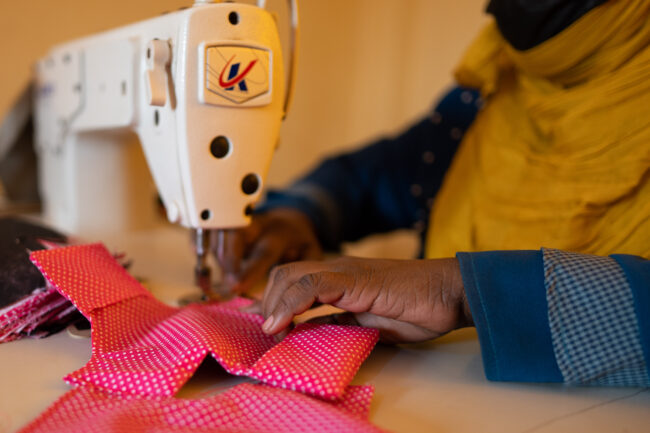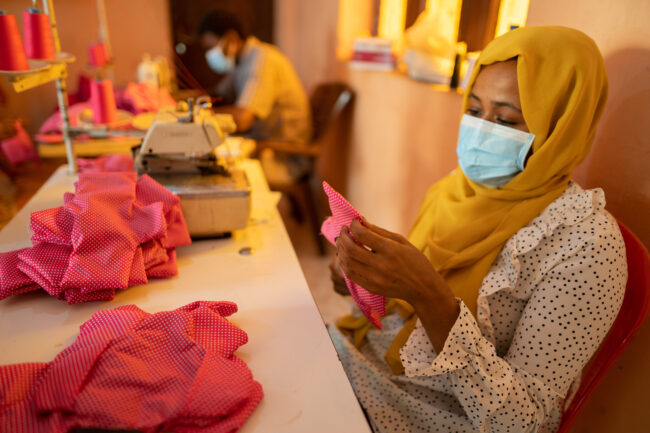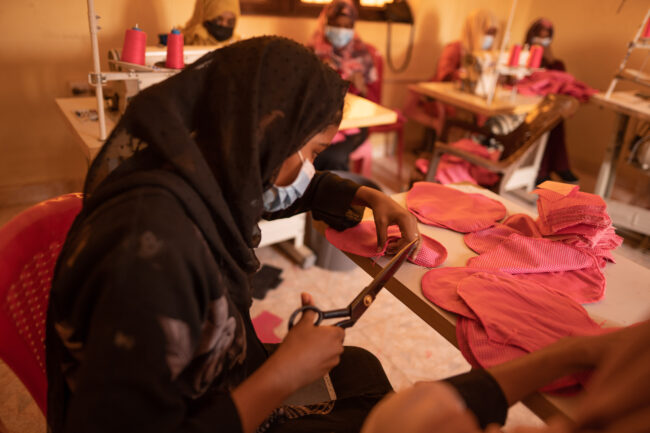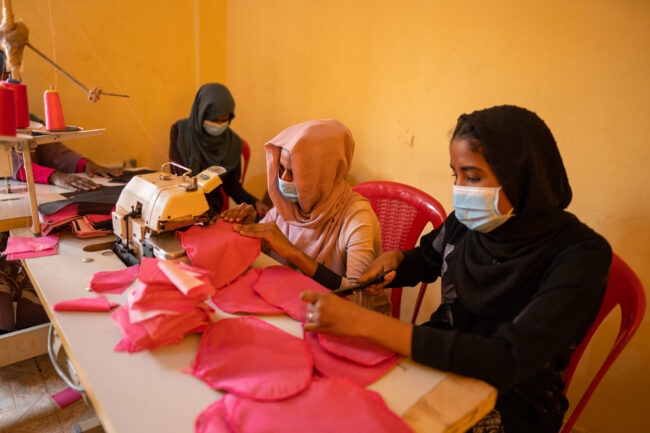Amna washable pads aim to provide thousands of Sudanese women with reusable and safe sanitary products. Giving women access to reusable pads will lift the period burden, empowering them to continue their education and work comfortably. Moreover, through the production of the pads, we will create meaningful work for 459 youths.
The Problem
Access to safe menstrual products is a challenge many women face. Since disposable sanitary pads can be costly and unavailable in some areas, women often resort to unsafe and uncomfortable period products. Several studies have also shown that the lack of safe, sanitary products risks not only menstrual health and hygiene but also impacts daily life, holding women back from school and work. This issue is highly prevalent in Sudan; many Sudanese women, especially vulnerable groups like refugees and internally displaced people, have limited access to sanitary pads. Since imported pads are expensive, women are often left with no healthy alternatives to costly disposable pads.
Our project will help combat this pressing challenge by producing affordable, reusable sanitary products. While doing so, we will also create decent work opportunities for the Sudanese youth. Sudan is facing a high unemployment rate, especially affecting young women and youth with a lower level of education. Our project will actively engage these individuals and help them develop their skills and successfully participate in the workforce.
The Solution
Alsalam Atelier will partner with Elnefeidi Group and United Nations Population Fund (UNFPA) to build a sanitary pads production line that will lead to locally-produced, environmentally friendly, and affordable products. We will create jobs for 459 youths in the first three years through this production line. Our long history in training and employing women from low socioeconomic backgrounds will equip us with the necessary expertise to realize a remarkable social impact on women’s inclusion.
To create jobs beyond the production line, we will collaborate with institutes like UNFPA and UNICEF to distribute the pads and open new doors for more youths to be engaged in meaningful economic endeavors.
All our staff will receive high salaries compared to the local market as well as attractive production incentives that will motivate them to increase production. Besides the social impact, this operation will be profitable, guaranteeing promising revenue that will ensure the continuity of the business beyond the CFYE.
Additionality
CFYE’s grant will help us kick off the project and reach bigger scales, ultimately impacting more young people in Sudan. Not only will the fund enable us to establish and increase our financial capacity, but its technical assistance will lead to a well-developed and gender-sensitive business model.



